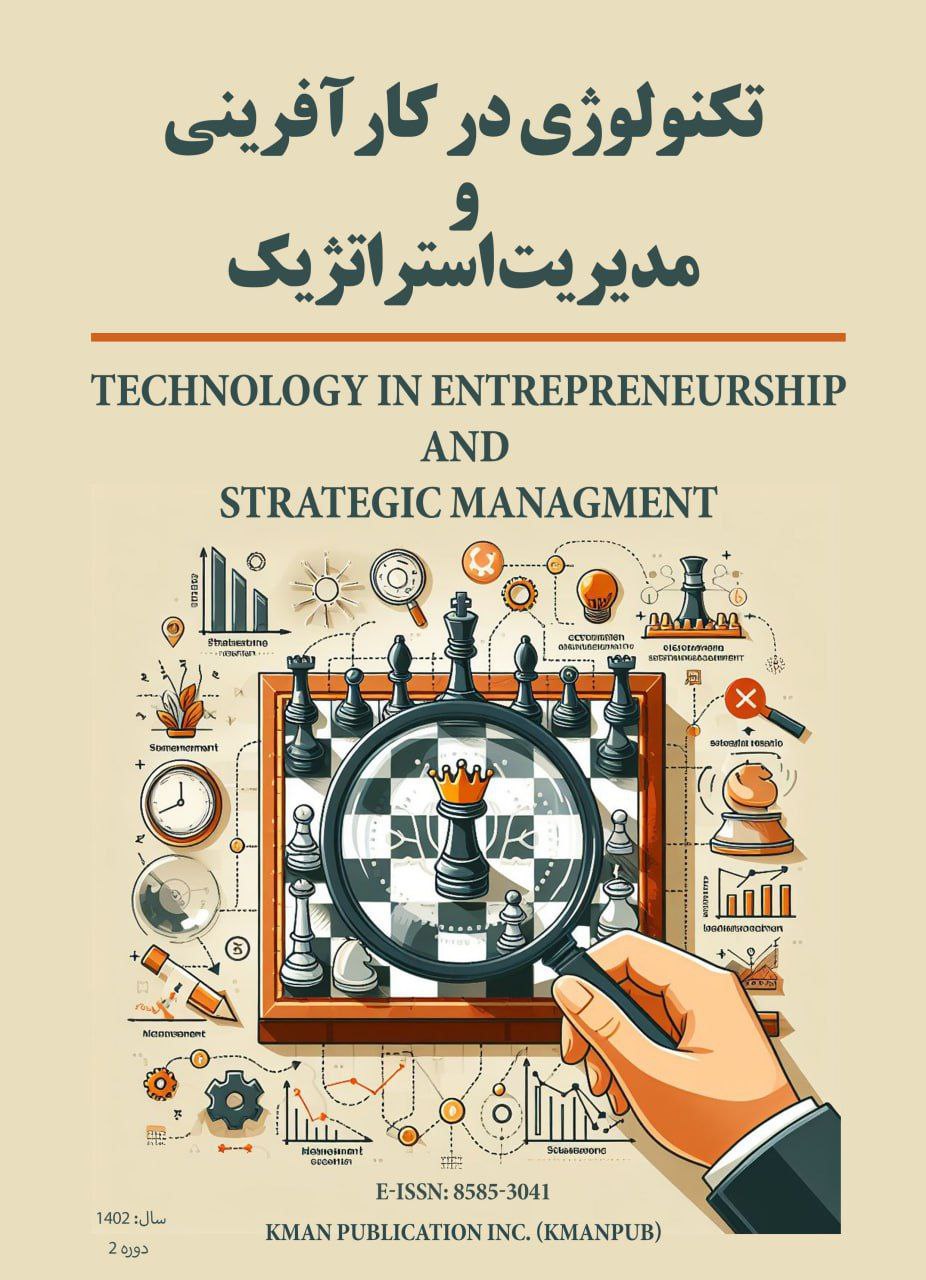Examining the Role of Green Technologies in Enhancing Corporate Social Responsibility
Keywords:
Green technologies, corporate social responsibility, sustainability, green innovationAbstract
This study aims to identify and analyze the role of green technologies in improving the performance of corporate social responsibility (CSR) in businesses. This qualitative research collected data through semi-structured interviews with managers and experts from companies that are leaders in implementing green technologies. The data analysis led to the identification of four main themes: the environmental impacts of green technologies, the adoption of technology and innovation, corporate social responsibility, and green technologies and digital transformation. These themes emphasize the importance of green technologies in enhancing the sustainability and social responsibility of businesses. The results confirm that green technologies play a significant role in strengthening corporate social responsibility and sustainability. They can serve as a key strategy for achieving sustainable development goals.
Downloads
References
Greenberg, S. B., Dotan, E., & Arazi, R. (2020). The Insurability of Innovative Pharmaceutical Cancer Technologies. Israel
Journal of Health Policy Research. https://doi.org/10.1186/s13584-020-00426-w
Kauf, S., Tłuczak, A., & Lysenko-Ryba, K. (2017). The Effects of Perceived CSR and Ecological Awareness on Purchase
Decisions in Poland. Organization & Management Scientific Quartely. https://doi.org/10.29119/1899-6116.2017.38.3
Li, W., & Pang, W. (2023). The Impact of Digital Inclusive Finance on Corporate ESG Performance: Based on the Perspective
of Corporate Green Technology Innovation. Environmental Science and Pollution Research.
https://doi.org/10.1007/s11356-023-27057-3
Mehmood, K. K., & Hanaysha, J. R. (2022). Impact of Corporate Social Responsibility, Green Intellectual Capital, and Green
Innovation on Competitive Advantage. International Journal of Human Capital and Information Technology
Professionals. https://doi.org/10.4018/ijhcitp.293232
Mirmohammadi, Z., & Talaneh, A. (2021). Identification of Nonfinancial Measures through Thematic Analysis Identifying
Non-financial Measures Based on Thematic Analysis Method. Accounting and Auditing Review, 28(1), 161-180.
https://doi.org/10.22059/acctgrev.2021.313117.1008463
Prodanova, N. A., Tarasova, O. A., & Kharakoz, J. (2023). Responsible Business: The Path to Sustainability. E3s Web of
Conferences. https://doi.org/10.1051/e3sconf/202337105008
Samadzadeh, M., Givarian, H., Rabiee Mandjin, M. R., & Hashemzadeh Khorasani, G. (2022). identification and ranking of
strategic policy -making components in information technology outsourcing (case study of islamic azad University). Public
Policy In Administration, 13(45), 35-49. https://doi.org/10.30495/ijpa.2022.19956
Song-qin, Y. E., & Guo, X. (2021). The Green Technology Innovation Mechanism and Path Selection of Government Subsidy.
https://doi.org/10.2991/assehr.k.210206.023
Wang, X., Elahi, E., & Khalid, Z. (2022). Do Green Finance Policies Foster Environmental, Social, and Governance
Performance of Corporate? International journal of environmental research and public health.
https://doi.org/10.3390/ijerph192214920
Widyastuti, S., Said, M. I., Siswono, S., & Dian. (2019). Customer Trust Through Green Corporate Image, Green Marketing
Staretgy and Social Responsibility: A Case Study. European Research Studies Journal. https://doi.org/10.35808/ersj/1476
Yiğitcanlar, T., Mehmood, R., & Corchado, J. M. (2021). Green Artificial Intelligence: Towards an Efficient, Sustainable and
Equitable Technology for Smart Cities and Futures. Sustainability. https://doi.org/10.3390/su13168952
Downloads
Published
Submitted
Revised
Accepted
Issue
Section
License

This work is licensed under a Creative Commons Attribution-NonCommercial 4.0 International License.












